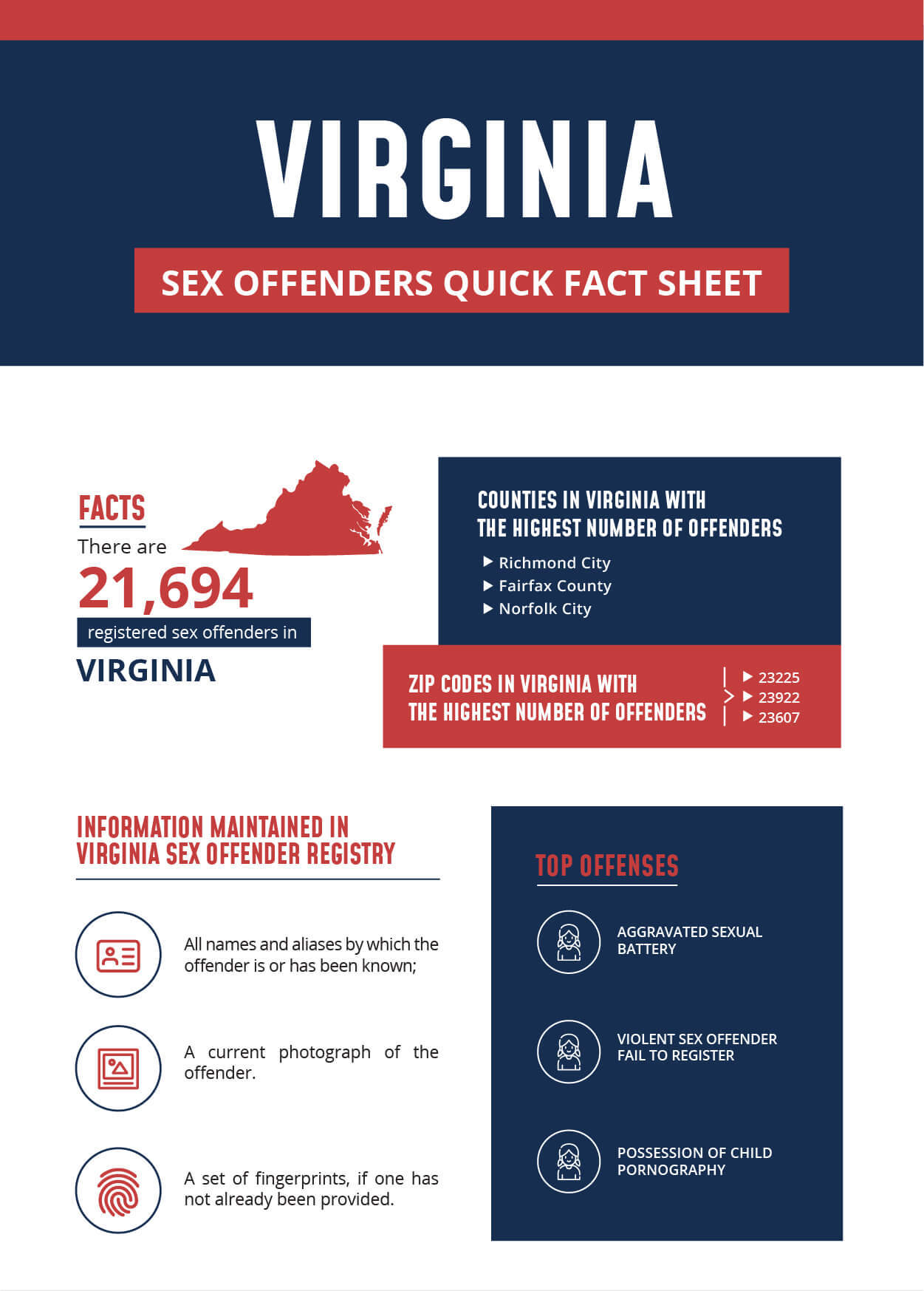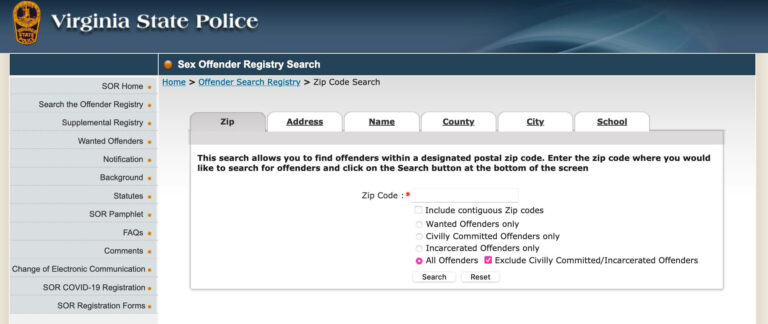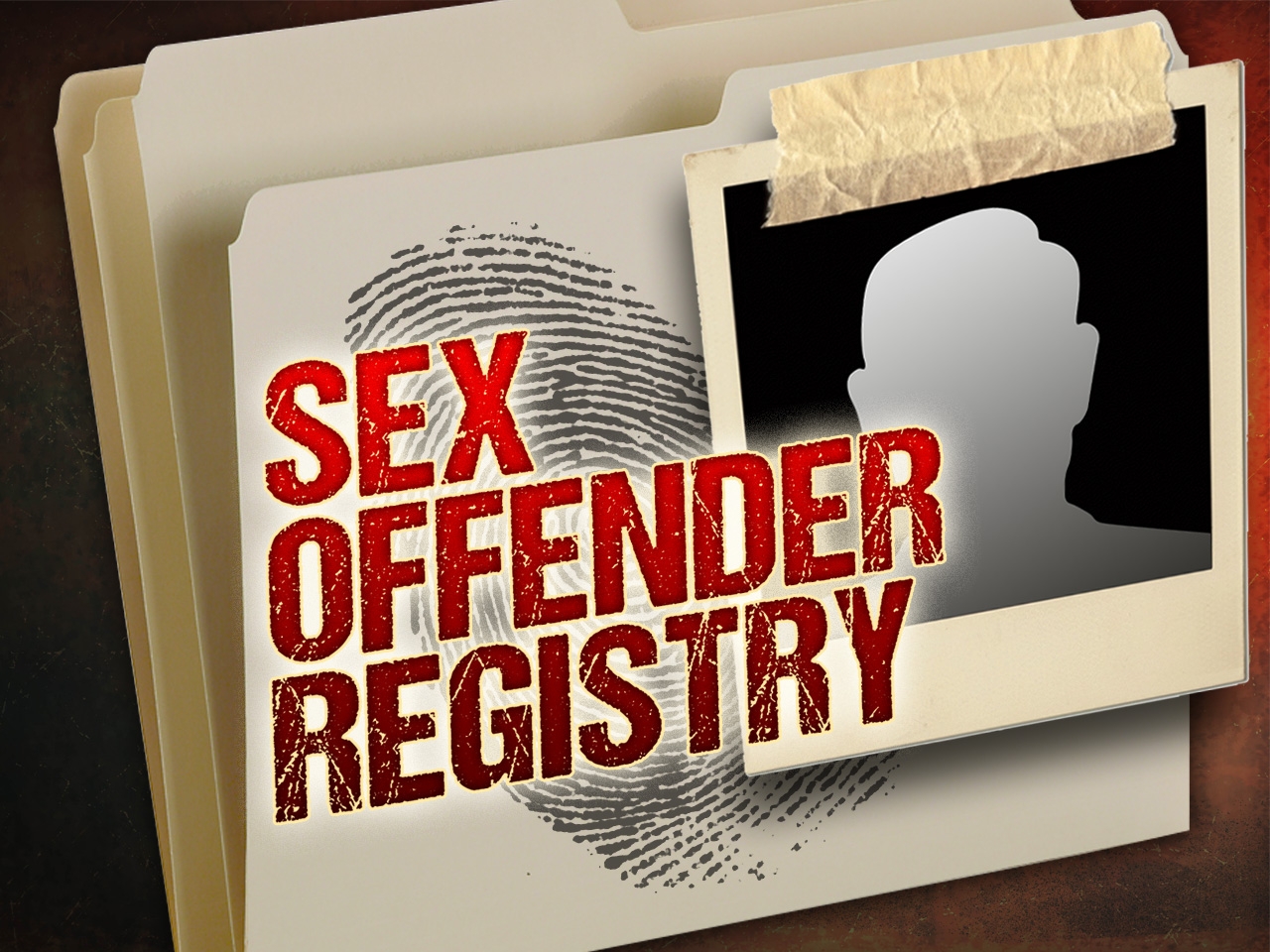Understanding Virginia’s Sex Offender Registry: A Tool for Public Safety and Community Awareness
Related Articles: Understanding Virginia’s Sex Offender Registry: A Tool for Public Safety and Community Awareness
Introduction
With great pleasure, we will explore the intriguing topic related to Understanding Virginia’s Sex Offender Registry: A Tool for Public Safety and Community Awareness. Let’s weave interesting information and offer fresh perspectives to the readers.
Table of Content
Understanding Virginia’s Sex Offender Registry: A Tool for Public Safety and Community Awareness

The Virginia Sex Offender and Crimes Against Minors Registry, commonly referred to as the "Virginia Sex Offender Map," is a valuable resource for citizens, law enforcement, and community organizations. It provides access to information about individuals convicted of certain sex offenses in the state, enabling informed decision-making and fostering community safety. This article delves into the intricacies of the registry, its purpose, its limitations, and its impact on public safety.
The Purpose and Structure of the Registry
The registry serves a multifaceted purpose:
- Transparency and Public Safety: By making information about registered sex offenders readily available, the registry empowers individuals to make informed decisions about their safety and the safety of their families. Parents can proactively check the registry before allowing their children to play at a friend’s house or attend a community event.
- Community Awareness and Prevention: The registry serves as a tool for community organizations, schools, and law enforcement to educate the public about the dangers of sex offenses and to implement preventative measures.
- Law Enforcement Support: The registry facilitates law enforcement investigations and assists in monitoring registered offenders. It provides valuable data for tracking offenders’ movements, identifying potential risks, and ensuring compliance with registration requirements.
The Virginia Sex Offender Registry is structured to provide comprehensive information about each registered offender, including:
- Personal Information: Name, date of birth, race, gender, and physical description.
- Offense Information: The specific sex offense(s) for which the individual was convicted, the date of the offense, and the jurisdiction where it occurred.
- Address Information: The registered offender’s current address, including street address, city, and county.
- Risk Level: A classification assigned to each offender based on their likelihood of re-offending, typically categorized as "high," "moderate," or "low."
- Photographic Evidence: In most cases, the registry includes a photograph of the registered offender.
Navigating the Registry: Accessing Information and Understanding Limitations
The Virginia Sex Offender Registry is accessible online through the Virginia State Police website. Users can search by various criteria, including name, address, and offense type. The registry provides detailed information about each registered offender, but it’s crucial to acknowledge its limitations:
- Incomplete Data: The registry is only as accurate as the information provided by law enforcement and the offenders themselves. Data discrepancies or omissions may occur.
- Dynamic Nature: Offenders’ addresses and risk levels can change over time. It is essential to check the registry periodically for updates.
- Privacy Concerns: The registry aims to balance public safety with the privacy rights of registered offenders. Some information, such as home addresses, may be redacted or restricted to specific users.
- Focus on Convicted Offenders: The registry only includes individuals convicted of certain sex offenses. It does not include information about individuals who have been accused but not convicted or individuals who have committed sex offenses outside of Virginia.
Frequently Asked Questions (FAQs)
Q: Who is required to register as a sex offender in Virginia?
A: Virginia law requires individuals convicted of certain sex offenses to register with the state. These offenses include, but are not limited to, rape, sexual assault, child molestation, and production or distribution of child pornography. The specific offenses requiring registration are outlined in Virginia Code § 19.2-390.
Q: How long does an individual have to register as a sex offender in Virginia?
A: The registration period varies depending on the severity of the offense. Some offenders may be required to register for life, while others may have a shorter registration period. The specific registration requirements are determined by the court at the time of sentencing.
Q: What are the consequences of failing to register as a sex offender in Virginia?
A: Failing to register as a sex offender is a serious crime in Virginia. It can result in significant penalties, including fines, imprisonment, and additional registration requirements.
Q: Can I remove my name from the Virginia Sex Offender Registry?
A: In most cases, individuals cannot remove their names from the Virginia Sex Offender Registry. However, some individuals may be eligible for a "pardon" or "expungement" of their conviction, which could potentially result in the removal of their name from the registry.
Tips for Using the Virginia Sex Offender Registry Effectively
- Be cautious about sharing information from the registry: While the registry is a public resource, it’s important to use caution when sharing information about registered offenders. Avoid spreading misinformation or engaging in harassment or discrimination.
- Use the registry as a tool for education and awareness: Encourage children and adults to understand the importance of safety and to be aware of the risks associated with sex offenses.
- Report any suspicious activity to law enforcement: If you have any concerns about the behavior of a registered offender, contact your local law enforcement agency immediately.
Conclusion: The Registry as a Tool for Safer Communities
The Virginia Sex Offender Registry is a valuable tool for promoting public safety and community awareness. By providing access to information about convicted sex offenders, the registry empowers individuals to make informed decisions and facilitates the work of law enforcement. It is essential to remember that the registry is not a perfect system and has limitations. However, by using the registry responsibly and understanding its limitations, citizens can contribute to creating safer communities for themselves and their families.








Closure
Thus, we hope this article has provided valuable insights into Understanding Virginia’s Sex Offender Registry: A Tool for Public Safety and Community Awareness. We hope you find this article informative and beneficial. See you in our next article!